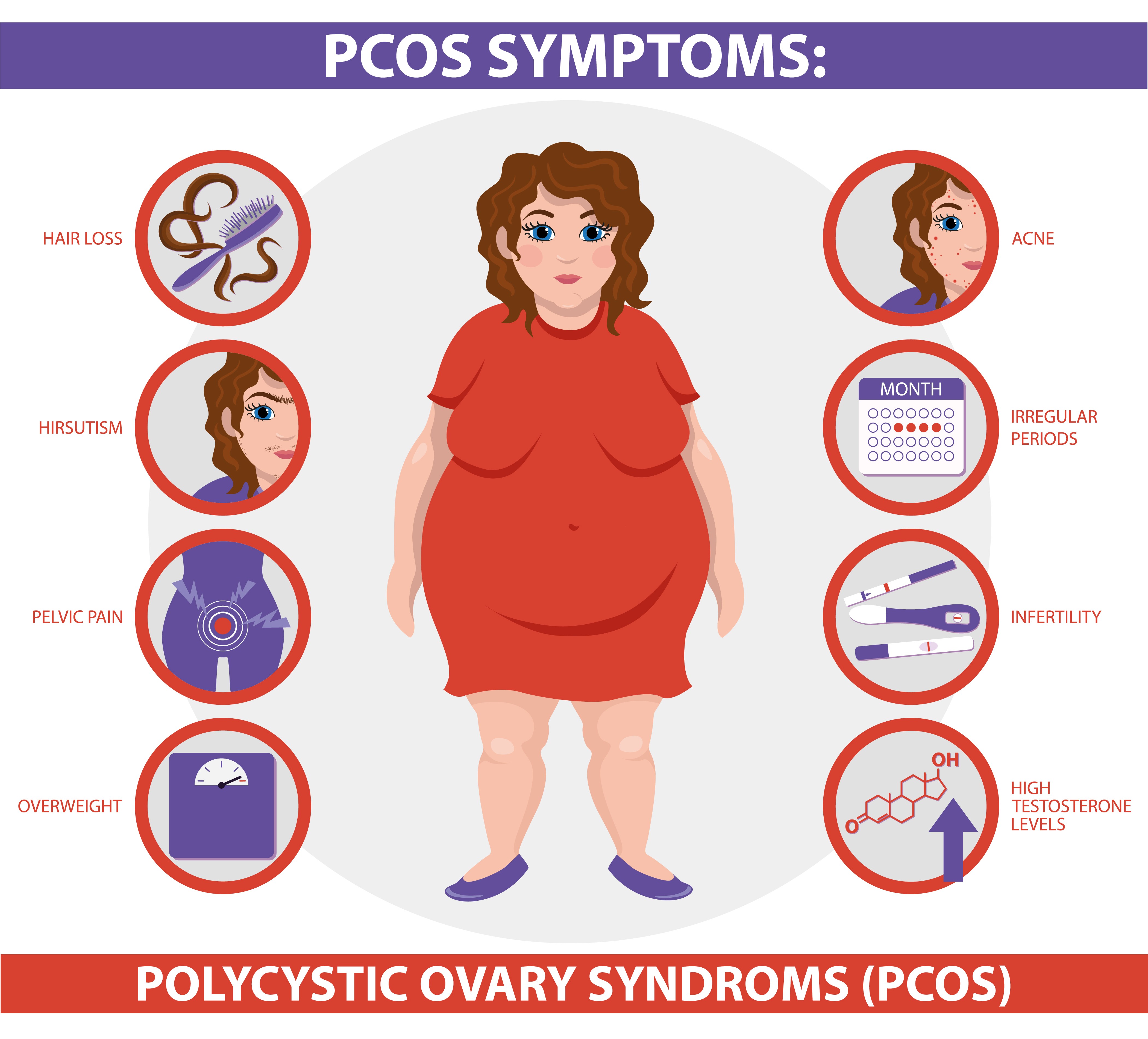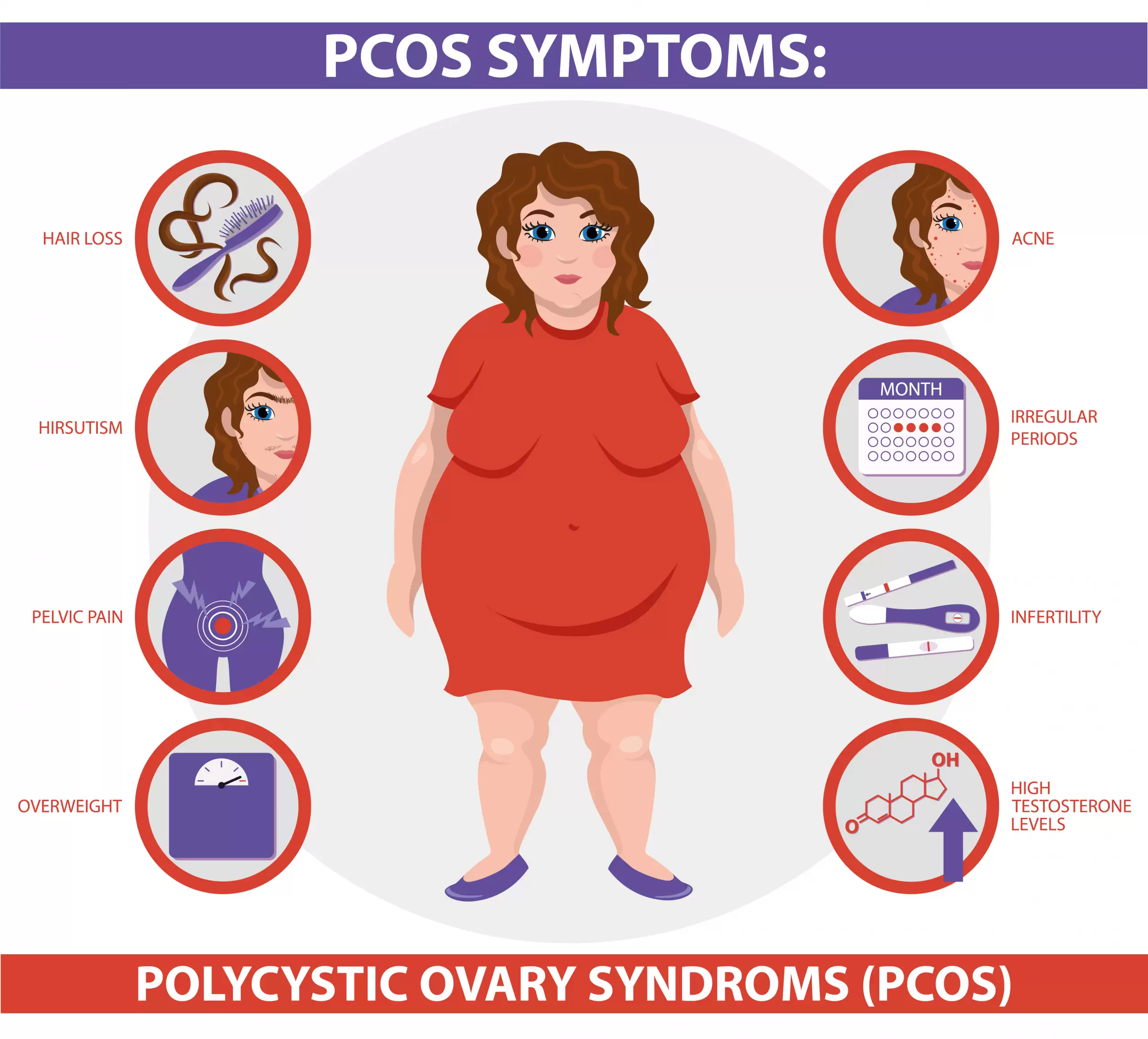

Find useful information
Polycystic Ovary Syndrome (PCOS)
What is PCOS?
Polycystic ovary syndrome (PCOS) is a condition in which the ovaries produce an abnormal amount of androgens, the male sex hormone most commonly present in women in small amounts. The term polycystic ovary syndrome refers to the numerous small cysts (fluid-filled sacs) that form in the ovaries. However, some women with the disease do not have cysts, while some women without the disease develop cysts.
PCOS is a metabolic endocrine condition that affects women throughout their reproductive years. PCOS symptoms include weight gain, hair loss, acne, irregular menstrual cycles, excessive bleeding, skipped periods for long duration,and other infertility issues.
The goal of PCOS treatment is to reduce the amount of androgens in the body. Treatment choices are flexible and take into account whether or not a woman wants to reproduce. Treatment options include birth control to manage the menstrual cycle or weight loss—even a 5 -10 percent weight loss can help people who are trying to regularize their cycles and also fertility. Patients may also be referred to a dietitian or an endocrinologist.
PCOS With In-Fertility:
Reproductive prevalence in women with PCOS varies between 70 and 80%. According to the American Society for Reproductive Medicine, testing for women with PCOS or other causes of childbirth should begin after one year of unsuccessful pregnancy if the couple has normal sexual intercourse (two to 3 times / week) without using contraception methods . To improve the therapeutic efficacy of infertile women with PCOS, tubal patency tests and sperm analysis are mandatory prior to prescribing treatment.
If you're experiencing any of these signs or symptoms, talk to us and we will guide you about developing a treatment plan that's tailored to your specific needs.



